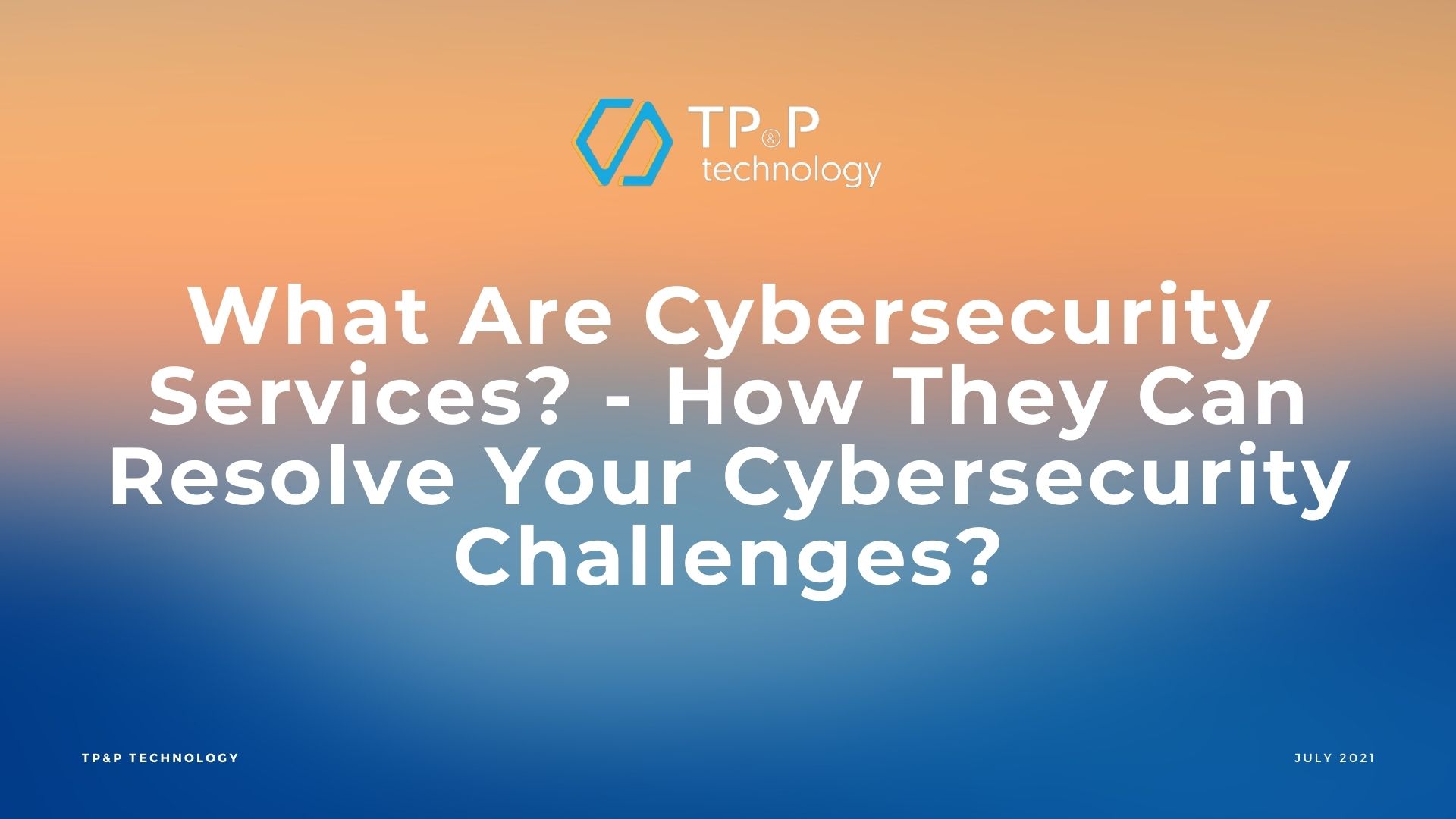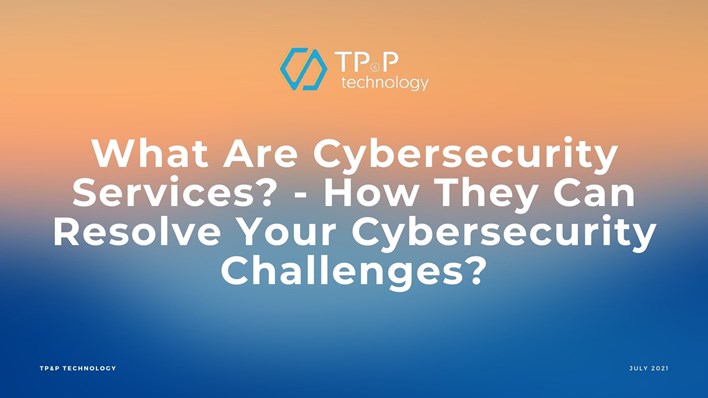
What Are Cybersecurity Services? - How They Can Resolve Your Cybersecurity Challenges?
As all businesses of all sizes are actively involved in digital transformation movements, we’re all seeing emerging challenges when it comes to cybersecurity and data privacy protection. Secure and stable cyberspace is crucial to maintain the vital public and economic operations of any society in this digital and data-driven world powered by next-generation ICT technology. In other words, cybersecurity and privacy protection are becoming basic necessities and core skills in today’s digital age. Hence, there are many more cybersecurity services popping up nowadays.
This article will provide you with information on what cybersecurity consulting services are and how they can help solve your problem.
What is cybersecurity?
Before getting into the definition and all related information about cybersecurity services. Let’s understand what cybersecurity really means.
Cybersecurity is the process and ongoing practice of protecting data, networks, and computers from unauthorized access, whether through external cyber-attacks or other dangers. Contact information, passwords, credit card numbers, bank account information, social security numbers, etc and any other non-public information are must protected data.
Personal information is extremely valuable. Hackers and corporations are both aware of this. This is the reason why both go to tremendous efforts to obtain it, while one does so in a far more legal and moral manner.

However, as technologies and data collection methods advance day by day, so do the tactics used by cybercriminals to steal information. Businesses have to be especially cautious and take the responsibility to protect their customers’ data as well as be upfront about their operations.
On a global scale, as cyberattacks become more common, all industries are taking cybersecurity more seriously, and it has become a strategic agenda item in boardrooms. Effective technology and a standard-led cybersecurity approach are required for the effective administration of tomorrow’s varied ICT networks.
Today, cybersecurity is a collaborative effort including all stakeholders, like governments, industry and standards businesses and technology providers. It is becoming increasingly clear that efforts must be made to make significant progress in lowering such risk, including partnering to create consensus on principles, legislation, standards, best practices, conduct norms, and protocols.
Why should you care about cybersecurity?
Over 4 billion records were exposed in data breaches incidents at the beginning of 2019. According to a recent study, hackers attack every 39 seconds, amounting to 2,244 attacks each day on average.
Small and medium-sized enterprises are particularly vulnerable. Although large organizations such as Sears are the top data breach victims, hackers prefer attacking small businesses. That’s because they have more valuable digital assets than the average consumer, but they don’t have the same level of privacy protection as larger corporations. As a consequence, they are in the “sweet spot” for the attack.
Cybersecurity violations are frustrating for enterprises and consumers. Some consumers might even stop purchasing at the business where their data is leaked. Therefore, as a business, you should definitely invest in cybersecurity practices. There are many cybersecurity consulting services in Vietnam that can help you.
Cybersecurity terms you have to know
Here are some of the cybersecurity terms that you must know when working with your cybersecurity service providers:
Authentication
This is the common one - the process of proving your identity. For instance, your password verifies that you are the person who should have the username in question, or your picture in your ID is a way of validating that the information on the ID corresponds to you. Nowadays, we can easily use two-factor authentication to protect our accounts.
Data breach
Data breaches happen when a cybercriminal illegally accesses a business’s or an individual’s data.
Backup
You can back your data up by transferring your data to a secure place like a cloud or external hard drive. This allows you to recover your system in case of a system crash or attack.
Encryption
Encryption is the process of encrypting data using codes and cyphers. When data is encrypted, it is converted into unintelligible nonsense by a computer using a key. The data can only be decrypted by a receiver who has the correct key. An attacker who gains access to encrypted material but lacks the key is unable to view the unencrypted version.
Digital certificate
A digital certificate, also known as an identity certificate or a public key certificate, is a sort of passcode that is used to send data over the internet securely. It's simply a digital file embedded in a device or piece of hardware that offers authentication when the device or piece of hardware sends and receives data to and from another device or server.
What are the common challenges that businesses are facing?
According to ENISA, phishing attacks are the most common challenges that businesses are facing.
85 per cent of the SMEs believe that cybersecurity issues will have a significant negative impact on their company, with 57 per cent predicting that they will go out of business. In a study of over 250 SMEs, 36% said they had been involved in an incident in the previous five years. Even so, cyberattacks are still not regarded as a big threat to a huge percentage of SMEs, and the perception persists that cyber incidents mainly affect larger businesses.
Unfortunately, phishing attacks, along with ransomware, stolen computers, and CEO frauds, are the top common cyber issues SMEs are likely to face, according to the survey. As a result of the pandemic's fears, fraudsters are attempting to breach accounts by sending phishing emails with COVID-19 as the topic.
Some of the reasons behind the increasing cyber-attacks incidents are:
- Lack of knowledge of cyber threats
- Work from home
- Inadequate security for sensitive and essential information
- Low managerial support
- No appropriate recommendations geared to the SMEs sector
- Insufficient funds to pay the costs of deploying cybersecurity measures
- Expertise and personnel in ICT cybersecurity are not available
How to resolve these cybersecurity challenges?
To solve the cybersecurity-related problems, you’ll have to tackle three aspects:
- People: when it comes to cybersecurity, people are crucial. In relation to confidential and/or sensitive information, all stakeholders must take responsibility, cybersecurity training and policies in businesses must be taken seriously.
- Technical: at the technical level, many factors should be considered like network security, anti-virus, monitoring, encryption, backup, etc.
- ProcessesAudits, incident planning and response, software patches, data protection, etc are all examples of internal business operational processes that need to be monitored.



